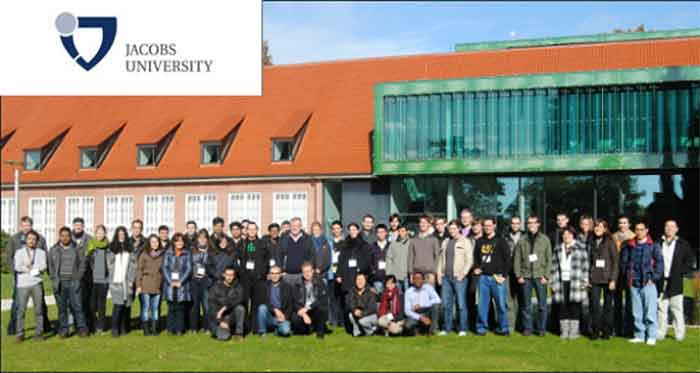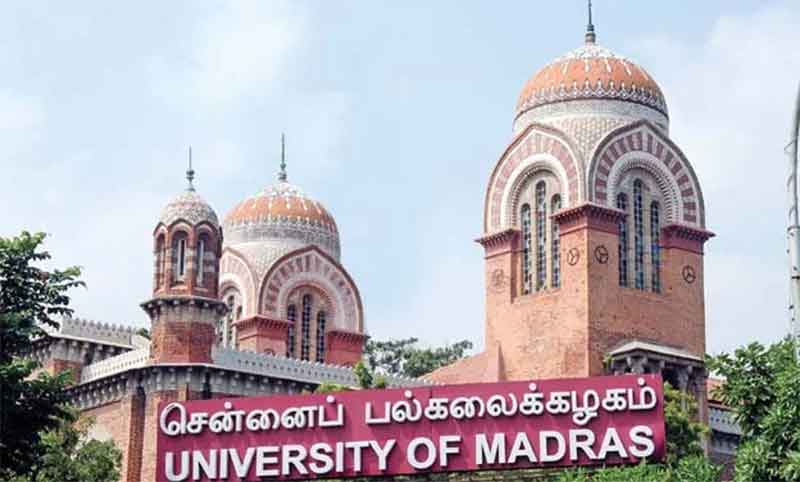Written by Thomas Klikauer and Norman Simms

Nestled in the northern Hanseatic port city of Bremen, Jacobs University is one of Germany’s few private tertiary institutions Jacobs University In a country dominated by 107 state-run universities., it is soon to join a list of eighteen other private universities and colleges that have closed their doors in the last few years.
Recognised as a private university by the city of Bremen. its official sponsor is the Jacobs Foundation. According to its on line site, Jacobs University runs programmes in engineering, natural sciences, humanities and social sciences, offering mostly BA, but also a few MA and PhD degrees, Set up as an English-speaking campus, Jacobs University claims to have students from over 120 nations. Some of this is true, most an exaggeration—and it soon will not matter at all.
Following the motto of 1960s neoliberalism that “The market is always superior to the state,” the mission statement of Jacobs University was to challenge the near monopoly of German state universities. At first generously financed by corporate donors, as well as by the state government and receiving student fees, Jacobs University did indeed put pressure on the state-run institutions for the last twenty years. But today, finally, this dream of trust-busting has come crashing down under the weight of its own neoliberal delusions. How so? To save itself, Jacobs University is seeking money from China.
The irony of neoliberal free market dogma is that Bremen’s red-green-red state government has become the key support of a so-called “private” university. Since the German media like to assign colours to political parties, red-green-red means a coalition government, consisting of social-democrats (red), an environmental party (green), and the progressive Die Linke party (red). In short, a progressive-environmental coalition found itself forced to come to the rescue of Hayek’s dream of a fully functioning and self-supporting free market.
At the beginning of 2021, the state of Bremen acquired two-thirds of the shares in Jacobs University in order to salvage a private enterprise from its own ideology of a free market, competition, ending red tape, de-regulation, modern management, corporate efficiency, etc. Failing abysmally in these ambitions, the state of Bremen will temporarily manage Jacobs University until its current students graduate. The private beacon on the hill – as Jacobs University liked to call itself – will not be enrolling any new students. There are currently 1,570 students in degree courses, with a staff of 421 of whom 76 were professors.
As the university’s financial problems grew in the last few years, so its market failure became obvious to all. Worse for its ideological backers, the university failed to come up with a plan to save itself from the talons of the market. Today, Jacobs University offers little to aspiring students. Meanwhile the Jacobs Foundation, which supported the university for a many years, has had to pledge yet another €60 million to keep things barely chugging along. The end is in sight.
Until very recently, the state government of Bremen was clinging on to a half-baked idea of handing Jacobs University over to a Chinese corporation called Neusoft. The idea was that Neusoft, together with the German software company SAP and a German research centre for artificial intelligence known as DFKI would set up a new centre for artificial intelligence that would attract 3,000 students. In the light of real circumstances, that dream would take quite a bit of artificial intelligence.
Twenty years after its foundation, the immanent bankruptcy of a university based on the American model of private education exposes itself in all its financial weakness. Trapped in its own illusions, Jacobs University had even boasted about being the European door opener for the coming Chinese century. None of these grandiose aspirations has panned out. The university is going kaput.
Under this banner, economist Wolfram Elsner – once head of the state’s Bremen Committee for Economic Research – published a euphoric book about the China connection. A short time ago, Elsner said, the critical attitude of many Europeans towards China is based on ignorance. This may well be true but perhaps equally true is the failure of his own belief in Hayek’s free market, competition and privatisation. The wobbly tripod can easily tip over.
A mere twenty years of failure stands between the hallucination of creating a Harvard University in Bremen and its current China dream. There appears to be a rather strange habit of issuing grandiose statements and visions, while simultaneously selling empty hopes. Twenty years ago, Henning Scharf, then social-democratic mayor of Bremen – Henning Scherf – was rather optimistic about the emergence of a private university in his city. Falling in line with neoliberal imaginations, the leftist-leaning mayor promised tough competition for Germany’s state-run universities by donating €115 million of taxpayer money to the upstart Jacobs University. In other words, a private university commenced its life with a hefty cheque of taxpayer money and boasted it could trade its way to success.
The upstart little university was funding by Bremen’s state treasury. One of Germany’s most recognised politicians, no less than Helmut Schmidt, the former social-democratic Federal Chancellor Helmut Schmidt came to Bremen to give a keynote speech at the inauguration of Jacobs University. But even when Schmidt smelled a rat and complained that “he had recognized the failure of public universities for some time”, he mistook the source of the foul odour—not the state but the private ambition. Chain-smoking Schmidt did not live long enough to see the demise of his beloved Jacobs University. Meanwhile the University of Bremen, a public institution, continues to function shows no signs of failure.
The imaginary world of Jacobs University also produced the idea that Rice University (USA) was to come on board as a partner of Bremen’s private university. At the same time, one of Germany’s most recognised flagship institutions of Hayekian free market dogmas – the conservative Frankfurter Allgemeine Zeitung – thought that Harvard is the benchmark for Jacobs University, implying that one day Jacobs might be equal to the Ivy League giant. Another suggested partnership was Rice University (Houston, Texas), But even this was never going to happen, no matter how much cheering rang out from the grandstands.
Since the signs of decline became evident to the media and all but the most self-deluded administrators, Jacobs University has struggled to create a favourable PR image for itself. The same, unfortunately, cannot be said about efforts to improve the quality of teaching and research, things which might actually have helped drag the young university out of the Slough of Despondent Debts. Despite Jacobs University’s PR announcement, Rice University, like Harvard, never became a full-fledged partner. Worse for the apostles of free market competition, from the very beginning, their private university stumbled on from one state subsidy to another. Constantly pointing to its link to the state, it demanded more money. Surely this is nothing but a kind of blackmail. It threatened the state of Bremen that if they didn’t cough up the needed funds the university would have to declare itself bankrupt. In other words, while Jacobs University promoted itself as a private university, it relied heavily on public money to function.
In the end, it was neither the private market nor the wealthy American students coming to Bremen who kept the show going for as long as it did. Instead, a few students from Europe’s Balkan region dredged up the necessary funds, most of them on scholarships and loans. From the very beginning, Jacobs University offered only Bachelor’s degrees. It avoided expensive research and graduate programmes. Its PR trick of offering a 1:10 supervision-student ratio was the key to whatever success it had.
This chance to get up front and personal with professors was very attractive to first-year students because it was so rare commodity in Germany. There were only very few MA students and a handful of academics doing scholarly research. That kind of advanced work which keeps the faculty in shape and provides the proper scholarly atmosphere, simply did not take place. Undergraduates had to move elsewhere to pursue further studies and professors also went elsewhere to advance their careers.
Already in 2006, suspicious signs emerged that Jacobs University’s blatant falsehoods and deceptions were starting to catch up with its official puffery. That year would actually have been the end of the private university. What saved it was Bremen’s red-green – environmentalist and social-democratic – coalition which gave a further €50 million loan to Jacobs University. The Jacobs Foundation chipped in, too, by promising €200 million in the hope that the private university would maintain the name “Jacobs”.
Sensing the failure of Jacobs University, the state of Bremen linked its grant of €5 million per year to the condition that Jacobs University engage in cooperation with Bremen’s state-run University of Bremen. In this way, Jacobs University became a minor player in the state of Bremen’s science policy strategy. The 110-page strong policy paper, however, devoted only one page to Jacobs University. From the airy-fairy boast of being an elite university, Jacobs University was deflated to not much more than a rather inconsequential appendix to Bremen’s state universities.
In an attempt to rescue Jacobs University from its own ideology, Bremen’s senate announced in November 2020 that China’s Neusoft corporations would help. Neusoft operates private universities with 20,000 students in China. The plan was that Neusoft would take over Jacobs University together with SAP and the state-funded DFKI. Those who know the history of Chinese university involvements in the west could not believe their eyes when they read the news. Could the people running Jacobs University and their supporters in the city government be so gullible and naïve!
Looked at objectively, Bremen’s plan had only one problem. None of the three parties to the agreement acknowledged what Bremen’s Senate had officially announced. The president of the Jacobs University resigned. As for the others, there were informal discussions with SAP, Neusoft and DFKI but nothing more. In the end, the private university failed.
Twenty years ago, the little state of Bremen wanted to establish a private university. Years of public subsidies allowed the Hayekian ideology of free market competition to shine. Jacobs University’s glossy brochures told everyone about it. Despite the glittery PR façade, Jacobs University had no real little candle to shine under its basket. Eventually, not even a quickly cooked up SAP-Neusoft-DFKI deal was able to rescue it. Even the mesmerizing prospect of millions of dollars arriving from China evaporated, marking an embarrassing end to private for-profit education. No one had to announce that the Emperor had no clothes on.
Thomas Klikauer is the author of Managerialism (2013) and The AfD(2020). He is currently completing a book on Media Capitalism.
IF YOU LIKED THE ARTICLE SUPPORT PEOPLE’S JOURNALISM














































